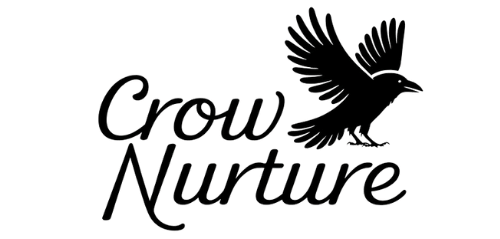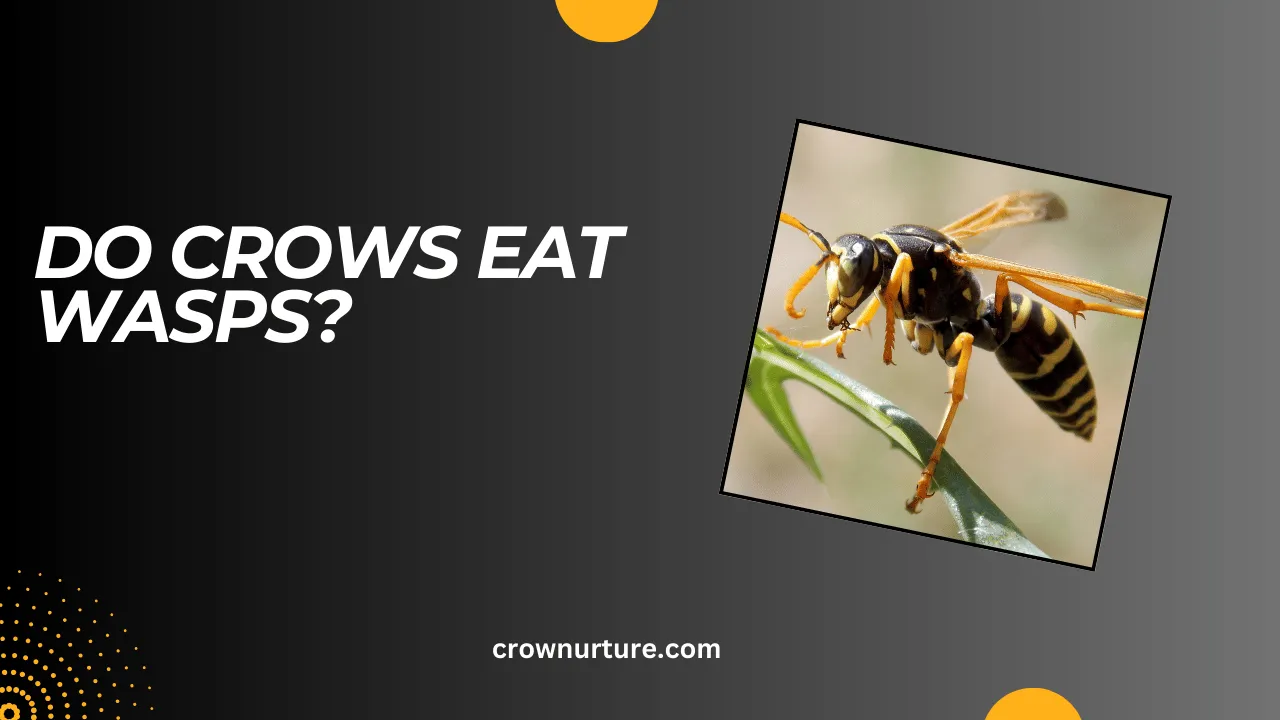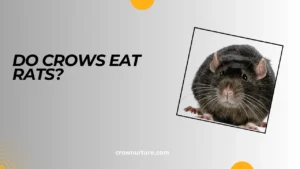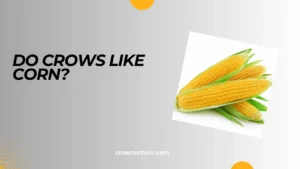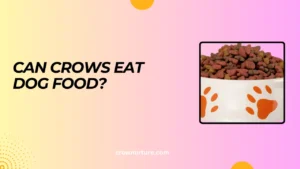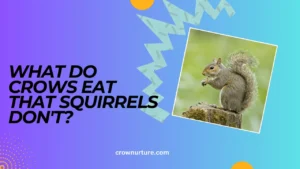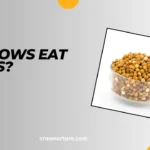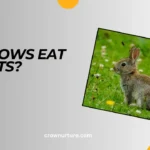Crows are known for their intelligence, adaptability, and a diet as diverse as their habitats. But have you ever wondered if these clever birds feast on something as intimidating as wasps? While most people would think twice about tangling with a wasp, crows seem undeterred, turning these stinging insects into a valuable food source when the opportunity arises.
Yes, crows eat wasps. Though wasps aren’t a primary part of their diet, they are a significant seasonal food, particularly when insects are abundant. This dietary habit reveals the crow’s remarkable ability to exploit a wide range of food sources. Understanding this behavior sheds light on the crow’s role in maintaining ecological balance and the complex interactions within food webs.
In this article, we’ll dive into the fascinating details of the crow’s omnivorous diet, their hunting strategies for capturing wasps, how they handle the risks of stings, and the ecological implications of their predation. Let’s unravel the story of crows and wasps, a dynamic yet often overlooked aspect of nature.
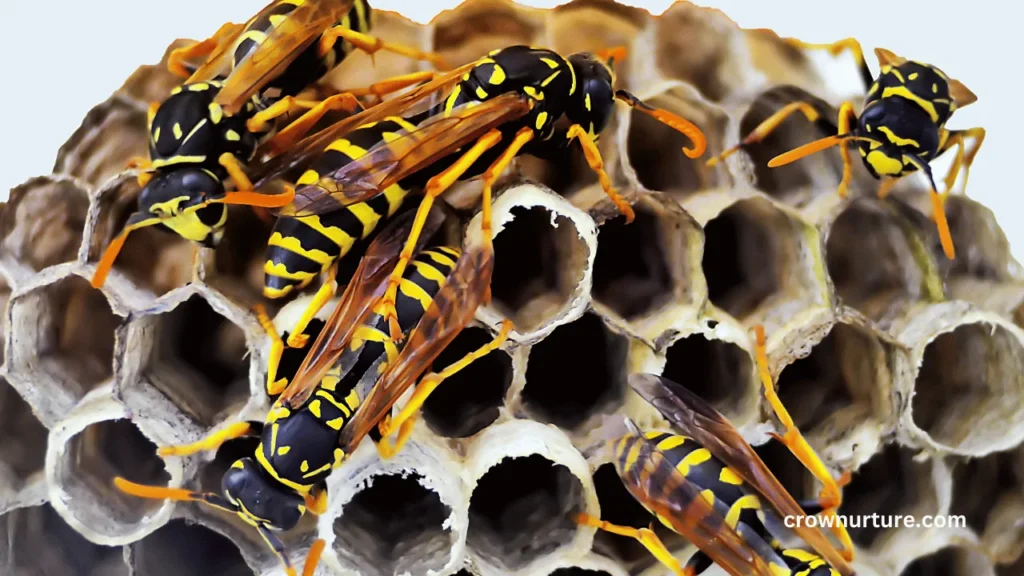
Contents
1. Crow Diet: A Diverse Menu
Crows are omnivores, consuming both plants and animals. Their diet includes insects, seeds, fruits, carrion, and even small animals. This flexibility allows them to thrive in urban, rural, and wild habitats.
Insects, particularly, play an essential role in their diet during the breeding season, when they need high-protein food for their chicks. Wasps become an option during certain times of the year when they are abundant.
As opportunistic feeders, crows adapt to the most accessible food sources, whether it’s a wasp in flight or a nest of larvae. Their adaptability is key to their survival and ecological success.
2. Hunting Strategies for Wasps
Crows display various strategies to capture wasps. One approach is aerial predation, where they snatch flying wasps mid-air, showcasing agility and precision.
They may also engage in ground foraging, targeting wasps resting on vegetation or seeking larvae in exposed nests. When necessary, crows can raid wasp nests, using their sharp beaks to extract the protein-rich larvae.
While raiding nests is risky, crows often use their intelligence to assess and mitigate danger, ensuring a successful hunt with minimal harm.
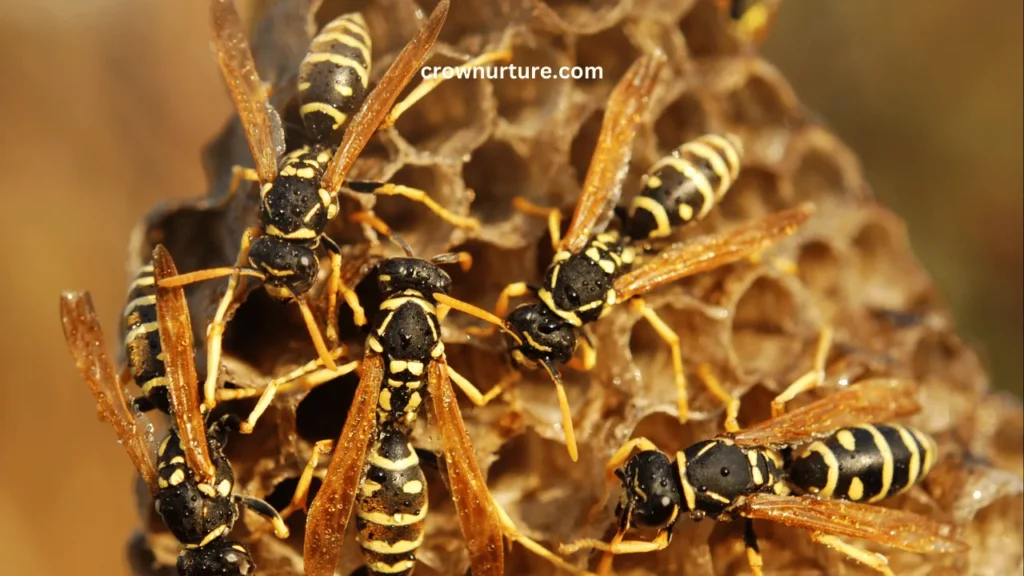
3. Dealing with Stings
Hunting wasps comes with the threat of painful stings, but crows are well-equipped to handle this challenge. Their thick plumage provides a natural barrier against stings, reducing potential harm.
Crows also display defensive behaviors, such as quickly shaking off wasps or dislodging stingers using their beaks. These learned behaviors showcase their ability to adapt and refine their hunting tactics over time.
Through trial and error, crows develop effective ways to manage the risks of hunting wasps, a testament to their problem-solving abilities.
4. The Role of Wasps in the Ecosystem
Wasps are not just prey; they are vital contributors to ecosystem health. As pollinators, they aid in the reproduction of many plant species, much like bees.
Additionally, wasps act as natural pest controllers, preying on other insects that could damage crops or spread diseases. Their presence in the food chain supports both plant and animal communities.
While crows feed on wasps, they do so without significantly harming wasp populations, maintaining a delicate ecological balance.
5. The Impact of Crow Predation on Wasp Populations
Crow predation on wasps serves as a form of population regulation, preventing wasps from overpopulating certain areas. This balance is crucial in environments where wasps could otherwise dominate.
By preying on wasps, crows help maintain the ecological balance necessary for healthy ecosystems. This predator-prey relationship highlights the interconnectedness of all species.
Crows’ selective hunting ensures that while they benefit nutritionally, wasps continue to thrive as essential players in the ecosystem.
Conclusion
Crows, with their omnivorous diet and opportunistic nature, are perfectly capable of eating wasps. Whether through aerial pursuits, nest raids, or ground foraging, they demonstrate adaptability and intelligence in their hunting strategies.
While wasps may seem like an unlikely food source, their predation by crows contributes to ecological balance. This relationship emphasizes the importance of understanding and preserving natural predator-prey dynamics in our ecosystems.
By appreciating the intricate web of interactions between crows, wasps, and the environment, we gain a deeper respect for the complexities of nature. Every species, no matter how small or seemingly insignificant, has a role to play.
FAQs
1. Do crows eat wasps regularly?
Crows eat wasps seasonally, depending on the availability of insects and other food sources.
2. How do crows avoid getting stung by wasps?
Crows rely on their thick plumage for protection and use defensive behaviors to minimize the risk of stings.
3. Do crows eat wasp larvae?
Yes, crows often raid nests to consume protein-rich wasp larvae, a valuable food source.
4. Why do crows eat wasps?
Crows eat wasps for their high protein content, especially during the breeding season when they need to feed their young.
5. Does crow predation harm wasp populations?
Crow predation helps regulate wasp populations but doesn’t significantly harm their numbers, maintaining ecological balance.
6. What role do wasps play in ecosystems?
Wasps are important as pollinators and natural pest controllers, contributing to plant reproduction and controlling insect populations.
